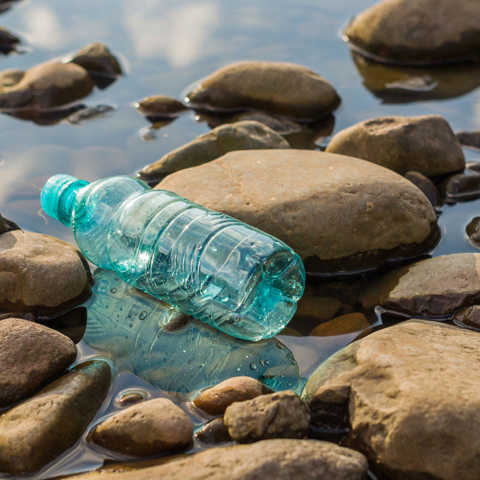Summary of Your Choices Matter: Single-Use Plastic:
Plastic is pervasive in our daily lives, from packaging to single-use items, and poses significant environmental threats as it is non-biodegradable. This waste often ends up in natural habitats, harming wildlife and even affecting human health through the food chain. The Tennessee River, for instance, has a high concentration of microplastics.
Recycling alone isn’t sufficient to address the plastic problem, as it depends on market demand and can be inefficient. Individuals can help by refusing single-use plastics, which constitute 40% of produced plastic, to alleviate recycling system pressures.
The Nashville Zoo encourages participation in the Plastic Free July EcoChallenge to reduce single-use plastics. Participants can make simple changes, such as avoiding plastic bags and straws, contributing to a collective impact. Sign up is available through the EcoChallenge website to join the effort.
- Understanding the widespread impact of single-use plastics on ecosystems and human health.
- Examining the role of microplastics and their prevalence in local environments like the Tennessee River.
- Exploring the limitations of recycling and the necessity for improved waste management systems.
- Encouraging individual actions and choices to reduce reliance on single-use plastics.
- Promoting community initiatives like the Plastic Free July EcoChallenge to drive collective environmental impact.
Plastic is nearly always present in our lives, appearing in a variety of forms such as candy wrappers, water bottles, and more. Unfortunately, many of these products are disposed of quickly after use. This habit leads to a waste problem that endangers wildlife habitats, affecting both plant and animal species. We must explore the influence of single-use plastics to understand their consequences and address the issue effectively.
The Plastic Problem
Plastic is not biodegradable. Every piece of plastic ever created remains in existence today. Items used for mere minutes, like plastic utensils or grocery bags, persist indefinitely. As plastic production outpaces waste management developments, it frequently pollutes rivers and oceans, causing harm to countless species. Notably, these plastics sometimes return to impact humans adversely. Consuming animals that have ingested substantial plastic can negatively affect human health, highlighting the interconnectedness of all life forms.
A Global and Local Problem
The plastic issue is global, affecting various regions differently. Locally, the Tennessee River exemplifies how microplastics have infiltrated ecosystems. With 80% more microplastics per square meter than China’s Yangtze River, the Tennessee River highlights a significant environmental concern. Microplastics are widespread because they originate from decomposing larger plastic waste and continue to integrate into the food chain. This process threatens both aquatic life and humans, as these tiny particles are often ingested by marine creatures and subsequently transferred up the food chain.
Need for Improved Waste Management
Recycling is often seen as the default solution to plastic waste, but it has limitations. The complexity of recycling systems and the lack of consistent demand for recycled materials mean that many items intended for recycling fail to find new life. The inefficiency in America’s recycling system sometimes leaves waste without a sustainable destination. The need for comprehensive waste management solutions is clear, requiring both systemic reform and individual action. By choosing to reject single-use plastics where possible, we can alleviate pressure on these systems.
Your Choices Matter
Single-use plastics account for a significant percentage of annual plastic production. Refusing these items when feasible becomes a powerful tool for change. By rejecting items like plastic grocery bags, cutlery, and straws, individuals can contribute to broader solutions aimed at reducing plastic waste. Each choice to use less plastic adds up, creating meaningful environmental benefits.
Initiatives for Change
Participating in initiatives like the Plastic Free July EcoChallenge empowers individuals to make impactful environmental choices. Such programs advocate for reducing the use of single-use plastics, inviting participants to commit to changes that cumulatively lead to significant environmental improvements. Simple commitments, like choosing alternative materials for everyday tasks, highlight the potential for broad-scale change through individual actions.
Community Engagement and Conservation
Community involvement in initiatives aimed at reducing plastic waste fosters conservation efforts on a broader scale. By engaging with programs such as the EcoChallenge, individuals join a collective movement working toward environmental stewardship. The combination of personal responsibility and community support enhances the effectiveness of conservation efforts targeted at mitigating the problems caused by single-use plastics.
Educational Outreach and Awareness
Education and awareness are key to addressing the challenges posed by single-use plastics. Understanding the consequences of plastic waste empowers individuals to make informed decisions. Educational campaigns can increase public awareness about the environmental impact of plastics, promoting a culture of sustainability and responsibility crucial for driving lasting change.
Final Thoughts
The pervasive presence of single-use plastics poses significant challenges that extend beyond local environments to a global scale. Addressing this issue requires a multifaceted approach involving improved waste management systems, informed individual choices, and active community participation. By working collectively to reduce our reliance on single-use plastics, we can protect ecosystems and ensure a healthier planet for future generations. Through continued education and commitment to change, we can tackle the plastic problem with renewed resolve.


